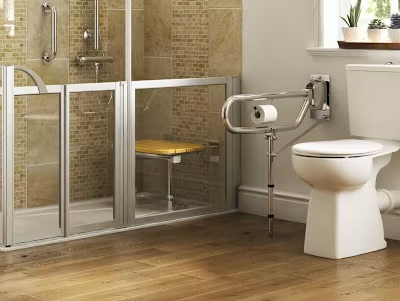Dear Middle-Aged Adults: A Dive into Healthy Lifestyle in 2024

Table of Contents
Dear middle-aged adult. What a beauty you have become. Every silver hair – or none – a mirror of experiences, memories, and lessons learned. One which also brings you to a crossroads – the reality that your lifestyle choices are increasingly becoming evident as your overall health.
But fear not, we shall sail these muddy waters together; while you keep in mind, that aging does not have to mean bad health.
Noncommunicable Diseases (NCDs)
We will begin our journey from what’s called Non-Communicable Diseases (NCDs). These, simply are lifestyle diseases. They result from the combined effects of one’s genetics, environment, and choices. NCDs cannot be transmitted from person to person and they often develop over extended periods. Examples of this include hypertension, diabetes, stroke, lung diseases, and cancer.
NCDs are consistently on the rise and they prove fatal with age. One reason is that aging comes with increased susceptibility, where the body’s resilience may start to wane thanks to some metabolic changes, hormonal shifts, weakening immune systems, and functional decline in the heart and blood vessels.
Lifestyle Choices
Next, it is good to note that while we can not control our age, genetics, and many environmental factors; we can control our lifestyle choices. These include and are not limited to:
Poor diet: the sayings ‘a healthy body starts from your kitchen’ and ‘you are what you eat’ can’t be any more true. Simply avoid foods heavily processed, with saturated fats, processed sugars, and high in salt (sodium). These contribute to obesity, high blood pressure, and elevated cholesterol levels. Note that, the more natural and plant-based, the better. This should be your simple hack for your meals.
Level of physical activity: physical activity has been taking a bash thanks to the greater demands of daily life. Being sedentary promotes weight gain, obesity, muscle weakness, and various cardiovascular problems
Smoking: at this point, it couldn’t be more clear that smoking simply kills. A leading cause of cancer and respiratory diseases.
Alcohol Consumption; alcohol, through its course in your body has no positive relevance. If it has one, the bad it does heavily outweighs the probable good. Hence avoid it as much as is possible.
Key Takeaway:
1 Cultivate Healthy Lifestyle Choices: Remember the more natural and plant-based your food is, the better, embrace a diet rich in fruits, vegetables, whole grains, and lean meats (meat with fats removed).
Engage in regular movements and exercise. From brisk walking to jogging, swimming, cycling, and many others. Ensure you are having about 30 minutes of exercise /3 days /week. Your body will thank you for it.
Also, ensure the exercise is demanding enough to make your speaking uneasy. Simply avoid smoking and alcohol. Only moderate alcohol if you have to, that bad. But I warn that your liver won’t be pleased.
2. Do regular health checkups. This can prove crucial for the early detection of potential health issues or risks. Also, have your BP monitor (Sphygmomanometer) and Sugar monitor (Glucometer) if possible
3. Stay aware and informed. Staying proactive is very beneficial. It involves consuming relevant information for your health, and learning how to recognize potential risk factors and early warning signs.
4. Stress management techniques like meditation, yoga, and mindfulness can positively impact one’s mental and physical health. Stress on the other hand can increase the risk of an NCD
Conclusion
You need to recognize that significant changes often begin with small steps. Baby steps is the word. Make gradual changes to diets and exercise, progressively let go of bad choices, and replace them with new good ones. This is the pathway to sustainability.
Also, it can be beneficial to build support networks through friends, family, or a community group. They can provide a source of encouragement and motivation for the life-long journey. Remember, the goal is consistent baby steps and these can make all the difference.
Download the pdf below for a checklist and organized way to keep track of how healthy your lifestyle is (the F-A-N-T-A-S-T-I-C lifestyle checklist)
Like this project
Posted Jul 7, 2024
Dear middle-aged adult. What a beauty you have become. Every silver hair - or none - a mirror of experiences, memories, and lessons learned. One which also







